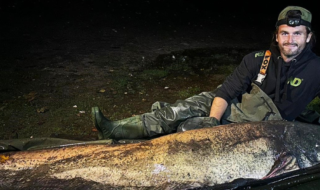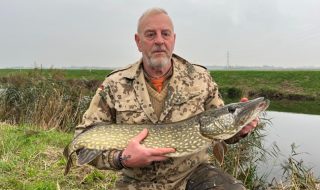Initial group of Central American hotels, resorts and restaurants set example for others in promoting sportfishing ecotourism by taking sailfish and marlin off their menus
The Billfish Foundation (TBF) entered into an agreement with its conservation partner, the Costa Rica Sport Fishing Federation (FECOPT) and four participating Hilton Worldwide hotels in Costa Rica, pledging to stop serving all sailfish and marlin.
Based on a socio-economic study released last year by TBF showing the huge economic value of sportfishing tourism to Costa Rica, the participating hotels adopted the ban on billfish from their restaurants in part to promote responsible and sustainable tourism in the nation.
The four properties include the DoubleTree Resort by Hilton Costa Rica in Puntarenas, the DoubleTree Cariari by Hilton San Jose, the Hilton Papagayo Costa Rica Resort and Spa, and the Hilton Garden Inn Liberia Airport. The bold conservation move with the hotels and resorts came after two months of discussions with FECOPT Executive Director Enrique Ramirez.
“TBF is proud of the efforts by Enrique Ramirez who secured the participation of the four participating Hilton Worldwide properties in Costa Rica and explained the conservation and business benefits of the world’s sportfishing tourists, reaffirming Costa Rica’s stature as one of the world’s premier fishing destinations,” noted TBF Chief Scientist Dr. Russell Nelson. “We specially appreciate the foresight of the general managers at the participating Hilton Worldwide hotels in Costa Rica – Ricardo Rodriguez Gil, Laura Castagnini and Rui Dominguez – that supporting sportfishing conservation efforts are good for the oceans and good for business as well.”
“The participating Hilton Worldwide hotels in Costa Rica are leading the way for Costa Rica’s tourism industry to move toward new levels of support for sportfishing conservation practices,” said FECOPT’s Ramirez. “Using the impetus of our agreement with the participating properties we look forward to partnering with sustainable tourism tour leader Horizontes to let this precedent spread across the nation’s tourism industry.
TBF President Ellen Peel applauded the agreement as a new standard for voluntary conservation action in the private sector adding, “we’re very pleased to see tourism businesses and government tourism officials responding so positively to the facts and information presented by our socio-economic research conducted with the University of Costa Rica that clearly supports TBF’s message that good conservation can be good economics.”
TBF has been working with governments such as Costa Rica, Mexico, Peru and Panama to protect billfish, mainly from overfishing coastal fisheries by commercial interests, while implementing tag and release programs for sportsmen. Herbert Nanne of San Jose serves as TBF’s Central American Conservation Director.






